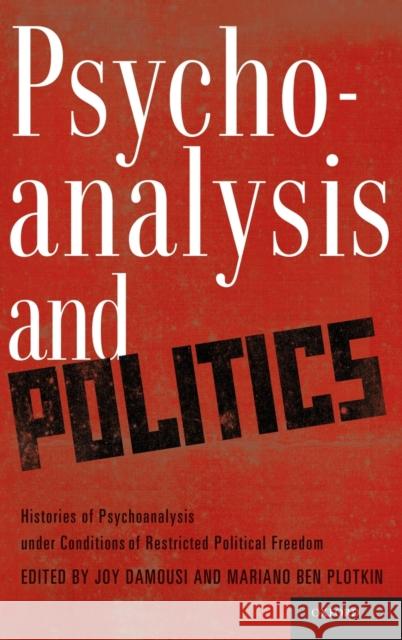Psychoanalysis and Politics » książka
Psychoanalysis and Politics
ISBN-13: 9780199744664 / Angielski / Twarda / 2012 / 320 str.
More than just a therapeutic technique, psychoanalysis as a school of thought has redefined our ideas on sexuality, the self, morality, family, and the nature of the mind for much of the twentieth century. At its broadest, Freud's thinking on civilization and social forces provides a context in which to consider the history of political struggle among individuals and societies. This volume explores a central paradox in the evolution of psychoanalytic thought and practice and the ways in which they were used. Why and how have some authoritarian regimes utilized psychoanalytic concepts of the self to envisage a new social and political order? How did psychoanalysis provide both theoretical and practical elements to legitimize resistance to those same regimes? How can a school of thought be co-opted so deftly by different groups for different political ends?
Bringing together contributions from innovative scholars of history, politics, and psychoanalysis, this volume analyzes the various outcomes of this fascinating and influential theory's development under a wide spectrum of governments that restricted political and cultural freedoms from the 1930s to the present. The regimes analyzed range from Fascist Italy, Vichy France, and Spain and Hungary under Fascism and Communism; modern Latin American dictatorships, such as Brazil and Argentina in the 1960s and 1970s; and the influence of Hoover, McCarthy, and the larger Cold War on psychoanalysis in America. A fresh addition to an enormous body of scholarship, this will be required reading for academics interested in the relationship between politics and non-political systems of thoughts and beliefs, the transnational circulation of ideas, social movements, and the intellectual and social history of psychoanalysis.










